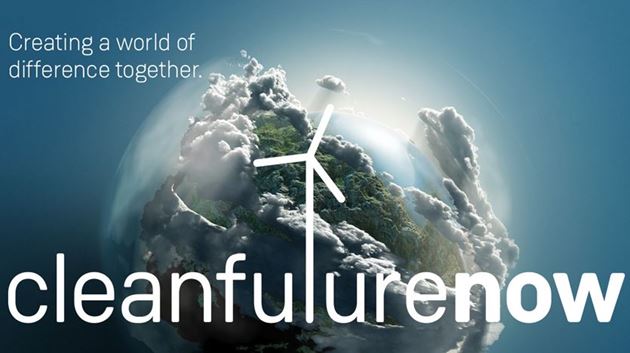
COP26: keeping climate on the agenda in 2021
The announcement last week that November’s planned UN climate summit, COP26, has been postponed to 2021 is not surprising as the world battles to contain the unprecedented impact of Covid-19.
Do you need further information or have specific questions around our press and media activities? Please contact us. We will be happy to take care of your request.
mediarelations@siemens-energy.com +34 944 03 73 52Despite the postponement, it is clear that COP26 will be an important and decisive milestone if we are to achieve meaningful progress in limiting the rise in global temperature to 1.5oC. As we embark upon this important decade in the fight against climate change, the world needs an escalated response; one that combines a regenerative environment with economic and social progress.
As we look forward to COP26, international delegates need to directly challenge the idea that cutting carbon emissions will constrain economic prosperity. If government’s around the world consider the economic benefits of creating more green jobs, increasing exports of green goods and services, investment in technology and innovation it becomes clear that decarbonization, as outgoing Bank of England Governor Mark Carney has said, represents ‘the greatest commercial opportunity of our time’.
Convenersneed to be thinking about the discussions that need to happen. As governments, businesses and delegates prepare for COP26, we would like to see three things: greater cooperation between policymakers and business, increased business and investment transparency, and greater involvement of citizens.
At climate summits dating back to the 1990s, the primary negotiators have been energy and environment ministers, rather than the presidents and prime ministers of carbon-intensive countries, meaning executive and political engagement power has been limited. Additionally, negotiators have often been nervous to agree to anything which might cause internal political tensions at home, such as increases in fuel prices or additional levies on business output.

However, government ministers in charge of climate commitments and policy now have much more power than they used to. For example, the New Zealand Minister for Climate Change has legislative power to request certain organizations to provide information on climate change adaptation plans.
New powers of this kind lay the groundwork for new dynamic relationships between business leaders and policymakers. Formalizing close relationships between enterprise leaders and their political counterparts will ensure meaningful change is enacted as quickly as possible, as policy can more quickly translate into action, which will be vital if the targets reached in the Paris Agreement are met.
Closely tied to this issue is the need for transparency with regard to the climate change targets currently being set by governments around the world. The issue has spread to the financial services sector in the form of deeper analysis of the standards currently applied to ESG (environmental and social governance). Reforming ESG reporting and regulation is at the heart of the European Green New Deal, encouraging financiers the world overto consider the green-nessof their investments.
Detailed disclosures on ESG policies could and should become the norm across all sectors worldwide, and this is worthy of discussion and agreement at COP26. By advocating for greater transparency, delegates can ensure that successful climate cutting ambitions are met, powered by a culture of honest reporting.
The past two years has seen an escalation of social activism, with many millions of consumers and citizens demanding more urgent action from politicians and businesses to address the negative impact of climate change. Beyond anything else, the widespread popularity of citizen-led action has shown that an ambitious response to climate changes cannot be undertaken without the express engagement of the public.
Delegates at COP26 must harness this appetite for change, by engaging society and giving citizens a voice. Groups such as Convention Citoyenne pour le Climatin in France and the Citizens’ Climate Assemblies in the UK exemplify the ability of governments to cooperate with citizens to spread awareness and decide on measures against climate change. Such an approach mirrors the ability of international governments to work together. Now, delegates must ensure that this spirit of cooperation is brought home with them to their respective countries.
Whatever form the discussions at next year’s COP26 take, it is vital that any agreement reached make the 2020s count in turning the tide of rising temperatures. International cooperation is important, and international summits such as COP26 play a vital role in resetting the climate agenda.
But at the same time, we need to embed more effective cooperation between policymakers, investors, business leaders and citizens. Only by doing so, can we successfully translate political and social ambition into the exponential and ambitious response to the climate emergency we need.


